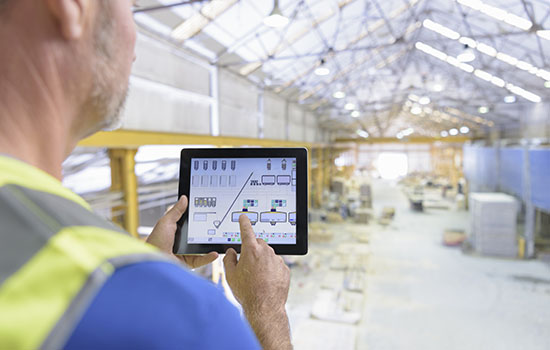Industry 4.0: The future of the industry is today!
Fabio De Pasquale
Business Developer, Atos Global Manufacturing, Retail and Transportation Markets
Posted on: 18 March 2020
We all know that Industry 4.0 is the fourth industrial revolution, but which technologies are transforming today the manufacturing sector?
Various technologies have made Industry 4.0 a reality: the Internet of Things (IoT), the Industrial Internet of Things (IIoT), virtual reality and augmented reality, Cloud, Big Data, blockchain or drones. But in 2020 the real pillars of Industry 4.0 which allow a rapid acceleration of innovation are certainly digital twins, edge computing, additive manufacturing, 5G, artificial intelligence (AI) ; and transversally to all these technologies, we must without doubt include cybersecurity.
Why are these technologies the pillars of Industry 4.0?
Industry 4.0 is characterized by the rapidity in providing visible results using the data generated and collected and the degree to which this data affects users.
Digital Twin
Digital Twins are presented as a disruptive technology in the simulation and analysis of industrial processes, helping to maximize the benefits of the digital transformation of the plant - a transformation in which many companies are already involved, and which will intensify in the coming years.
Digital Twins are live digital representations of machines, devices and processes, connected to the real system they represent through “Cyber-Physical Systems” (CPS). They allow to experiment and try new solutions in much shorter times and at much lower costs.


Edge Computing.
The difference between the third and the fourth industrial revolution is the use and accumulation of data. In an increasingly competitive and transnational context, we need a technology that allows faster use of the production information at any time, regardless of the location.
Edge computing enables to handle smoothly the huge amount of data that is managed, as it is also possible to process information at the edge of the network, close to the machine, where the data is produced, thus reducing for example the processing latency.
In addition, as this information has already been processed, the data center receives smaller volumes, thus saving bandwidth.
Additive manufacturing
3D printers research with new materials will build the unimaginable and revolutionize manufacturing processes and systems. This will lead to significant costs reduction in the creation of prototypes or short series.
Thanks to 3D printing, it is possible to print any element in various shapes and sizes in a totally personalized way with many materials and to create models and functional parts even in small series at very low costs.


5G
In the production chain, 5G can improve automation and increase the speed of information transfer. This will in turn enhance the performance of autonomous machines, applying the so-called "Network Slicing" - the ability of 5G to divide the network into subnets.
The Network Slicing will adjust connectivity to specific needs and situations. The combination of 5G and industrial automation will help to allocate more network resources to the machines. The automated sector of the industry will then benefit of the full power of 5G.
Artificial intelligence
The framework of Industry 4.0 cannot be reduced exclusively to the new technologies mentioned above.
Artificial intelligence (AI) is in fact the basis of the internal change within the factories. AI allows machines and robots to interact with each other and above all to learn from the various situations that are created within the production processes, leading to increased efficiency and reduced costs for businesses.
In the automotive sector however, the use of artificial intelligence will lead to the exponential growth of driverless systems, and will then negatively impact the industry.


Cybersecurity
Let's not forget that cybersecurity involves protecting information and systems against major cyber threats, such as cyberterrorism or cyber espionage.
With all the cyber threats evolving rapidly and continuously, maintaining cybersecurity strategy and operations is a great challenge for private companies.